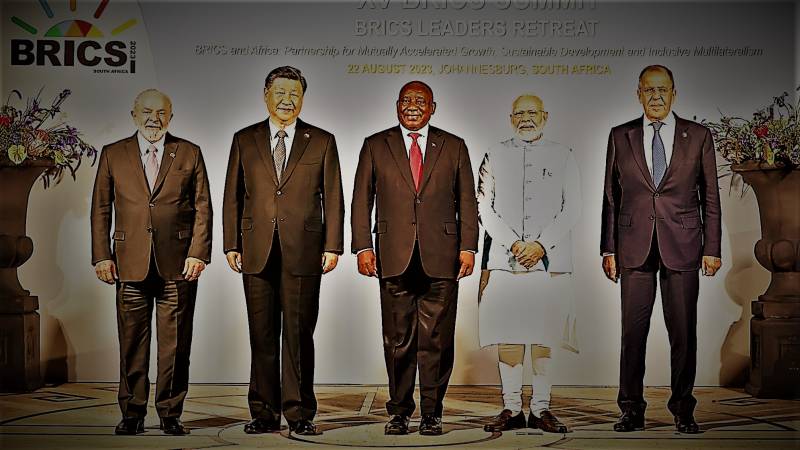
Leaders of a small but powerful coalition of developing economies, including Brazil, Russia, India, China and South Africa (BRICS), have invited six emerging economies to join their group.
The six developing nations asked to join BRICS include the Muslim countries Saudi Arabia, Iran, Egypt and the United Arab Emirates. The remaining two countries include Ethiopia and Argentina.
The move is aimed at growing the clout of the bloc, which has pledged to champion the "Global South".
The expansion could pave the way for dozens of interested countries seeking admission to BRICS in a world where geopolitical polarisation is growing.
South African President Cyril Ramaphosa, who is hosting the three-day summit of BRICS leaders in Johannesburg, announced on Thursday that the new candidates will be admitted as members on January 1, 2024.
The group represents around 40% of the world's population and a quarter of global gross domestic product. But it has failed to settle on a coherent vision for the bloc, grossly weakening the weight it has been able to throw about on the global stage.
More than 40 countries have expressed interest in joining BRICS, say South African officials, and 22 have formally asked to be admitted.
They represent a disparate pool of potential candidates motivated largely by a desire to level a global playing field many consider rigged against them and attracted by BRICS' promise to rebalance the global order.
Within the BRICS, however, there remain concerns and differences of opinion on growth and expansions.
While all members have publicly expressed support for growing the bloc, respective leaders have hinted at divisions over how much and how quickly.

